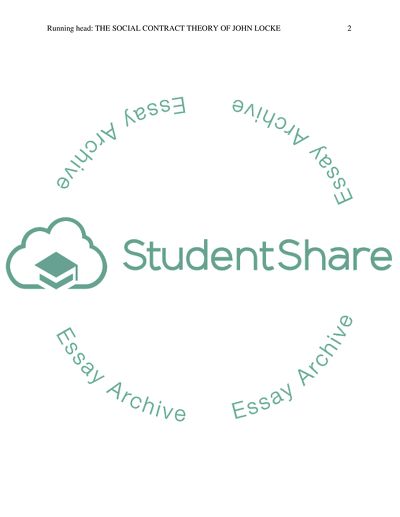Cite this document
(The Social Contract Theory of John Locke Coursework Example | Topics and Well Written Essays - 1500 words - 2, n.d.)
The Social Contract Theory of John Locke Coursework Example | Topics and Well Written Essays - 1500 words - 2. https://studentshare.org/philosophy/1699168-the-social-contract-theory-of-john-locke
The Social Contract Theory of John Locke Coursework Example | Topics and Well Written Essays - 1500 words - 2. https://studentshare.org/philosophy/1699168-the-social-contract-theory-of-john-locke
(The Social Contract Theory of John Locke Coursework Example | Topics and Well Written Essays - 1500 Words - 2)
The Social Contract Theory of John Locke Coursework Example | Topics and Well Written Essays - 1500 Words - 2. https://studentshare.org/philosophy/1699168-the-social-contract-theory-of-john-locke.
The Social Contract Theory of John Locke Coursework Example | Topics and Well Written Essays - 1500 Words - 2. https://studentshare.org/philosophy/1699168-the-social-contract-theory-of-john-locke.
“The Social Contract Theory of John Locke Coursework Example | Topics and Well Written Essays - 1500 Words - 2”. https://studentshare.org/philosophy/1699168-the-social-contract-theory-of-john-locke.


